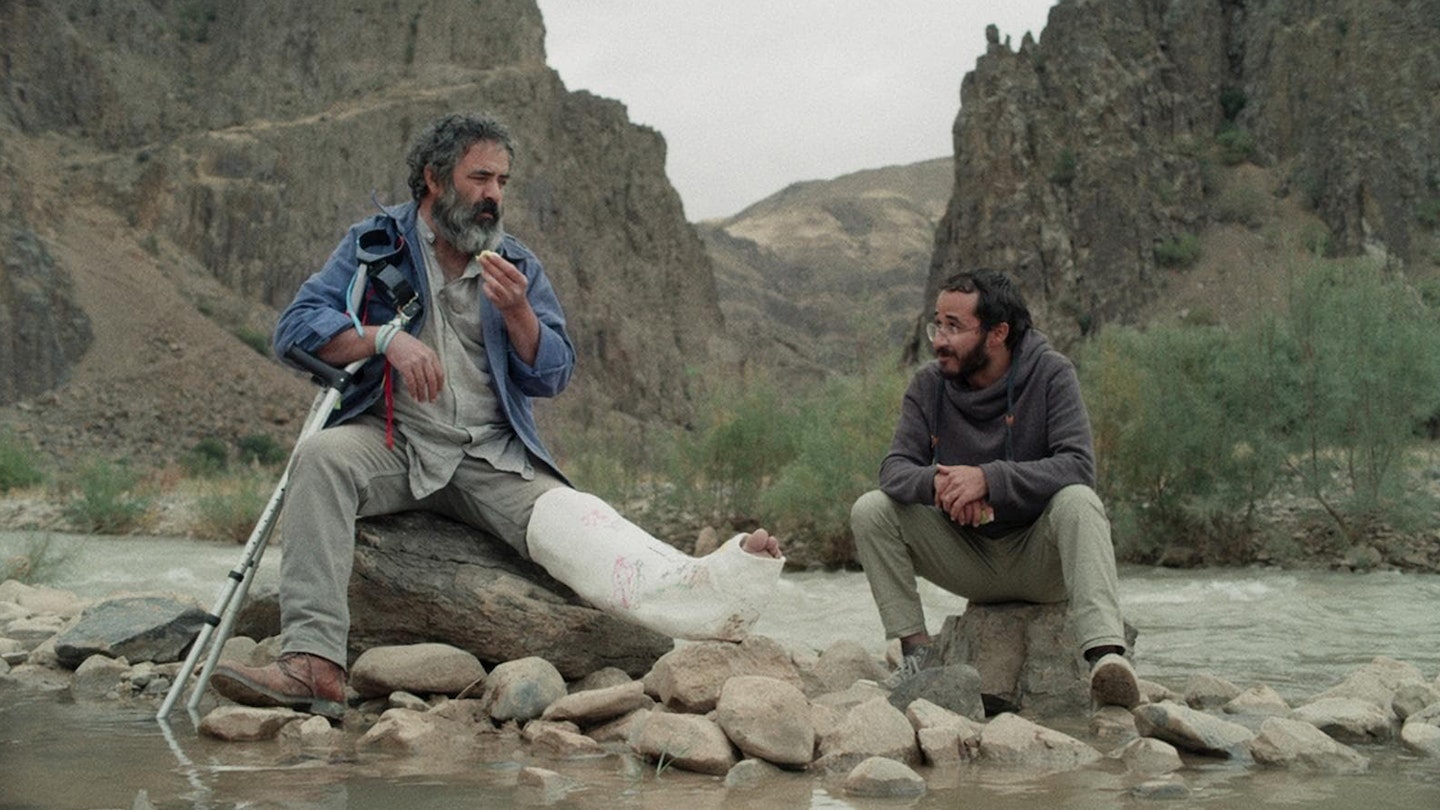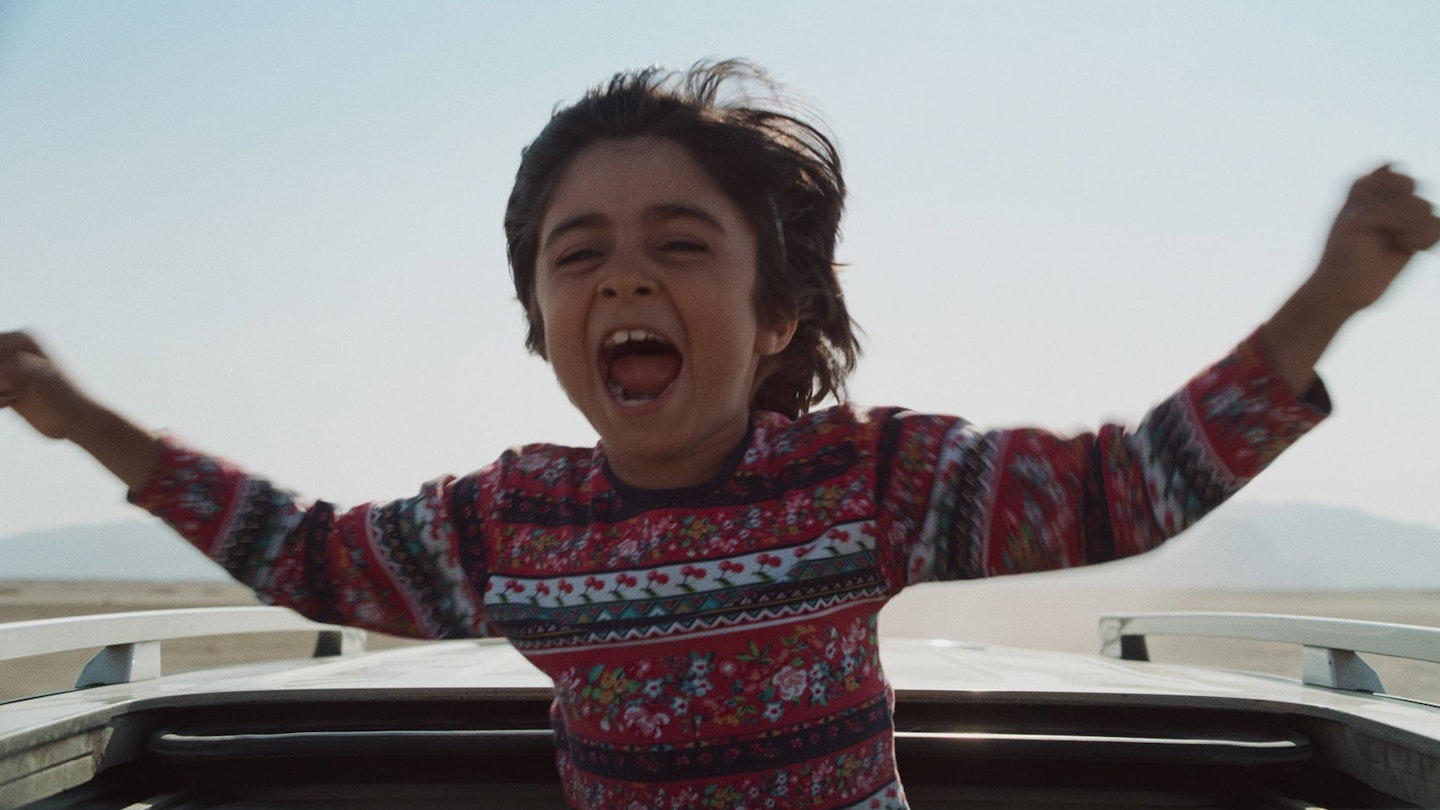Early on in Hit The Road, the family tries to have a “last-gasp party” in their car, with singing and dancing. The hyperactive younger brother — brilliantly played by tiny newcomer Rayan Sarlak — perceptively picks up on this phrase. “In movies, when they say ‘last-gasp’, something bad happens,” he says. His mother tries to reassure him. But Hit The Road is all about last-gasps: the family are on what appears to be a quietly desperate journey, a dash for the border of Iran, a guarded implication of the refugee experience. “Last-gasp party”, then, is a phrase that seems to hit the tone of this strangely sad, gently elegiac, off-guardedly funny film.

This is a hell of a debut from director Panah Panahi, and it’s hard not to read into the real-life circumstances of his life: his father is acclaimed filmmaker Jafar Panahi, who won the Cannes Caméra d’Or in 1995 for The White Balloon, and had his 2011 documentary This Is Not A Film smuggled out of the country on a USB drive hidden in a cake, while under house arrest. He comes not just from a proud filmmaking lineage, but a family forced to confront an oppressive, illiberal regime.
Why this particular fictional family take this road trip is something never explicitly revealed, but we can surmise plenty, in small, fraught moments — a SIM card being destroyed, a car seemingly on their tail. There’s danger and stress lurking everywhere, but the mood is kept largely light, the older characters keen to protect the innocence of the younger son; beautifully pitched performances from Iranian veterans Pantea Panahiha and Hasan Majuni, as the parents, switch fluidly from wit to whispered worry.
It's a strangely romantic experience, flush with poetic visual flourishes.
That tragi-comic tone is juggled skilfully, especially with the younger son’s restless energy (there is, for example, an out-of-nowhere reference to Batman Begins). It has the desert-dry wit of Middle Eastern filmmakers like Abbas Kiarostami or Elia Suleiman, the comedy revealing layers of lived-in family dynamics: the son calls his mother “dear lady”, the father calls the son “little fart”. They bicker affectionately, and sing sad, aching pre-Revolution songs about love and longing.
It’s a strangely romantic experience. Iran’s rugged, dramatic landscape flashes past the car windows, flush with poetic visual flourishes — a peloton of cyclists whizzing in the background of a reflective conversation; a red disposable chair being dragged through a field of wheat by a sickly dog. One key climactic scene is played entirely in an extreme wide shot, the family silhouetted on a far horizon. Panahi’s camera is tender and empathetic, but keeps its distance too, maintaining an enigmatic quality that feels in keeping with a family full of secrets.
The final act somewhat loses some of that early energetic charge, when the family reaches the border and their story finds a more melodramatic end — but it never loses focus on its characters, or what they must endure. A deeply stirring final shot completes the effect. Hell of a last gasp.
